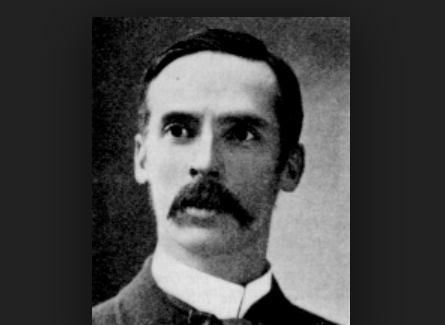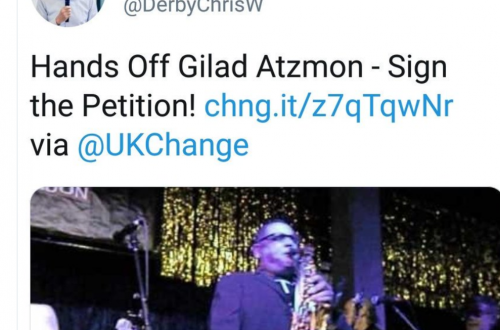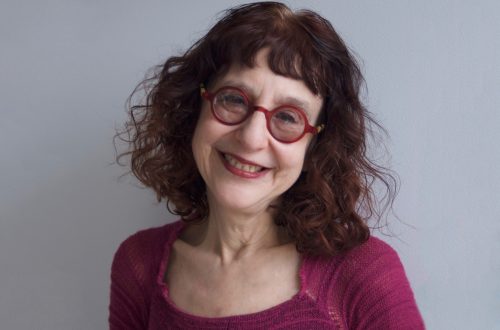This is a cross-post from Point of No Return
The launch today of a new booklet by the UK-based interfaith organisation Faith Matters highlighting the role of ‘Muslim heroes’ who saved Jews during the Holocaust is a welcome attempt to engage Arabs and Muslims with what was not an exclusively a European story. The booklet itself was inspired by Robert Satloff’s groundbreaking book Among the Righteous. However, Satloff himself might be disquieted at the unbalanced focus on Muslim heroes. In Tunisia, for every Khaled Abdelwahhab, who sheltered Jews in his farmhouse, there was a Hassen Ferjani, who sent Gilbert Scemla and his two sons to their deaths. Cherry-picking positive stories, while downplaying the negative, only misleads by creating a false history. Is this the way to build meaningful interfaith dialogue?
The booklet, entitled The role of Righteous Muslim Persons, reveals individual acts of heroism towards Jews, The Jerusalem Post reports:
“Guided by their Muslim faith and personal desire to do what was right, they protected and saved the lives of many potential victims. The publication also aims to counter the narrative that no Muslims played a part in the defense of Jewish communities during the War.
“The work focuses on people deemed ”Righteous Gentiles” by Jerusalem’s Yad Vashem and highlights the role played by individuals, families and communities in countries such as Albania, Algeria, Tunisia, Morocco, Turkey, Croatia, and Bosnia and Herzegovina.
“In Albania, Jews were not victims of the Nazis because of a national code of honor called “Besa,” a desire to help those in need, even those of another faith or origin.
“The booklet also tells the story of Muslim lawyer Khaled Mahameed, founder and curator of the first Arab Holocaust museum in Nazareth, who believes that by understanding such atrocities, one can stand up for justice and equality.
“This booklet is needed now more than ever, especially when there is very little in the public domain about the role that Muslim communities played in the Holocaust, as well as numerous articles and Web sites which repeat the mantra that Muslim communities are overwhelmingly negative in their thoughts and views about the Holocaust,” said Fiyaz Mughal, founder of Faith Matters and editor of the booklet.
“It highlights the noble deeds and courageous acts carried out by Muslims towards their Jewish neighbors, and I hope that faith communities will use the booklet as a tool to encourage greater understanding and respect towards each other,” he added.
“It is important to remember and learn from the actions of brave people who risked their lives to save others during the Holocaust,” said Karen Pollock, chief executive of the Holocaust Educational Trust. “These stories of individuals who faced great dangers to help Jewish people are inspirational.”
Laudable though this initiative is, one cannot help feeling misgivings. As Lyn Julius wrote in her review of Robert Satloff’s book, Satloff has himself failed to convey a sense of the almost universal tide of sympathy the Arab world felt for the Nazis. Between 150,000 and 300,000 Muslims fought on the side of the Axis. The scholar Jeffrey Herf has researched the huge impact of Nazi propaganda on the mostly illiterate Arab World.
One wonders how far Khaled Mahameed’s Holocaust museum in Nazareth spotlights the extent to which Arabs were supporters and allies of the Nazis, and the key role played by the Palestinian Mufti of Jerusalem, who is said to have been responsible for sending 20,000 European Jews to their deaths while he spent the war years in Berlin. The Arab world became a refuge for Nazi fugitives from Germany after the war; the latter had a significant role to play in disseminating the kind of virulent antisemitic propaganda pervading the Arab and Muslim world today.
Satloff himself makes the controversial statement that there was no ‘national responsibility or national guilt’ among Arabs for the Holocaust. This may have been true of the Vichy-ruled protectorates of the Maghreb, but it was certainly not true of Iraq, which began to introduce a raft of Nazi-style anti-Jewish legislation as soon almost as the country became independent in 1932. Iraq had a pro-Nazi government, if only for a month, and certainly bears ‘national responsibility’ for causing the Iraqi Jews’ own Kristallnacht – the Farhud pogrom of 1941 in which 180 Jews were murdered. It is a weakness of Satloff’s book that he chooses to dismiss the Farhud as just another anti-Jewish pogrom, and the growth of pre- WW2 Nazi-style youth groups and nationalist movements like Ba’athism in Iraq, Syria and Egypt, which have openly acknowledged their debt to Nazism.
Nazism had a profound influence in creating Islamic fundamentalism in the 1930s, a mass movement centred around Jew-hatred and Jihad. We are still living with the Nazi legacy of fundamentalist groups like the Muslim Brotherhood (Gaza branch: Hamas), as the German scholar Matthias Kuntzel has pointed out.
The Arab and Muslim world has never slain its fundamentalist demons, nor has it ever come to terms with the resulting ethnic cleansing of one million Jews from the Arab world in the last 50 years through state-sanctioned laws reminiscent of Nuremberg. In my view, interfaith dialogue can only work effectively if it does not attempt to gloss over inconvenient or uncomfortable truths. Fundamentalism is the enemy not just of Jews, but of all those who wish to see the Arab and Muslim world become a more tolerant, pluralistic place.


